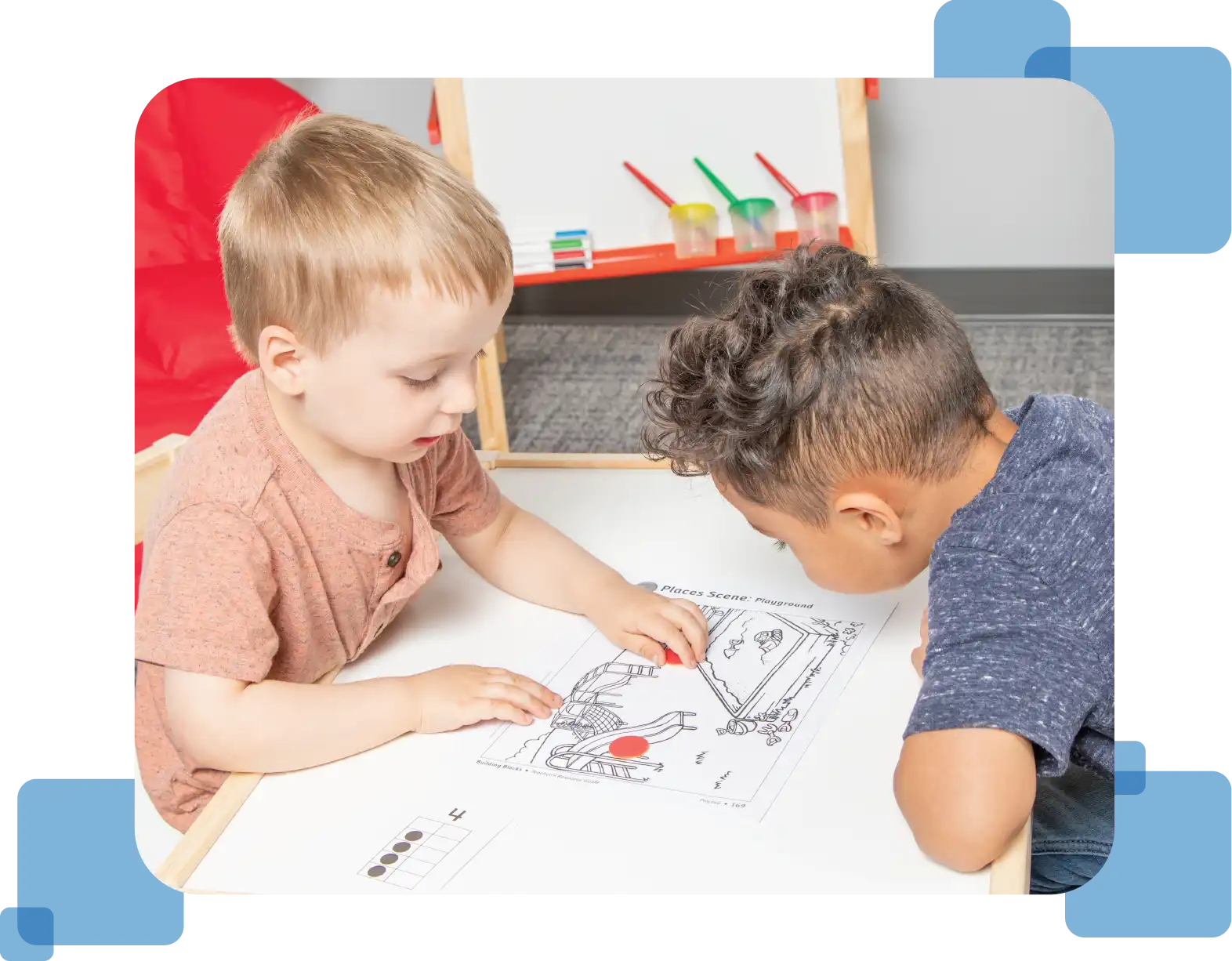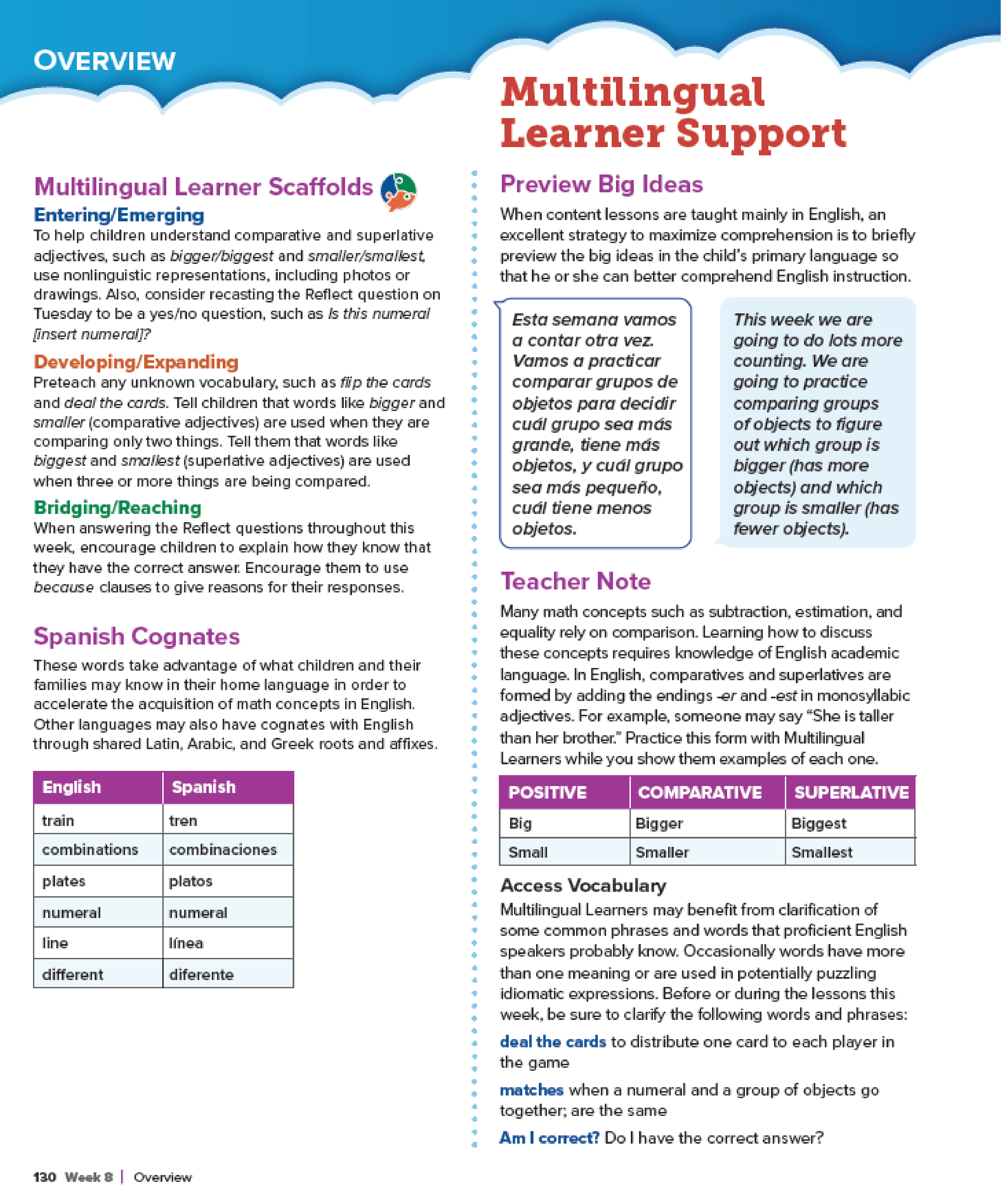My Account Details
Building Blocks® PreK Math in the Classroom
Building Blocks PreK Math seamlessly integrates math into children's daily routines—harnessing the power of curiosity and play to build strong foundational math skills. Consistent yet flexible, each lesson is built to empower you to jump right into teaching and make the most of your time in the classroom.

Flexible Implementation
Whether you have time for math every day or just a few days per week, Building Blocks PreK Math has options to maximize mathematical instruction for your PreK class. Both five-day and three-day implementation options provide teachers with robust lesson plans that engage children according to natural learning progressions.
The Weekly Planner
Your key to a successful week, the lesson planner provides objectives, learning trajectories, correlating activities, materials, and program-specific resources to help you prepare for the days ahead. Teachers on the three-day implementation need only complete the lessons for Monday, Tuesday, and Thursday.
Each daily lesson follows a consistent four-part structure to simplify planning and teaching.
Whole Group launches each lesson with a warm-up activity to get children ready for math.
Work Time outlines the digital practice, hands-on, and group activities for the day. Every lesson includes a variety of small group, whole group, and individual activities.
Reflect engages children in summarizing and analyzing their
mathematical thinking.
Assess highlights informal assessment opportunities each day, providing teachers with actionable data to inform instruction.

Weekly Wrap-Up
The Weekly Wrap-Up provides multiple assessment tools—Small Group Record Sheets, Weekly Record Sheets, and Learning Trajectory Records—for teachers to measure each child's progress. After assessment, teachers can differentiate instruction to meet each child's individual needs and move them toward the next level in the learning trajectory.


Multilingual Learner Support
The Multilingual Learner Support pages for each week provide strategies to help teachers support children from every language background with math concepts and vocabulary.
Preview Big Ideas offer strategies on how to support children's understanding of math
concepts in their primary language.
Multilingual Learner Scaffolds provide three levels of differentiated support based on each child's English proficiency.
Spanish Cognates and Access Vocabulary provide information to support vocabulary acquisition and develop English language proficiency.
Full-Spanish texts allow children to access critical math content in their native language.